HbA1C
How to submit an article:
- Registered users can submit any published journal article that has a unique DOI (Digital Object Identifier) name or link to Research Hub.
- For example, you can paste the full DOI link:
https://doi.org/10.1109/5.771073or just the DOI name:10.1109/5.771073into the field above and click submit. - The person who is first to submit a valid article to Research Hub will forever be credited for it, and every article submission earns you +6 Research Points.
Also known as: Glycated Haemoglobin
Published research studies are articles that present the findings of original research that has undergone a peer-review process and has been made publicly available in scholarly journals, books or other media.
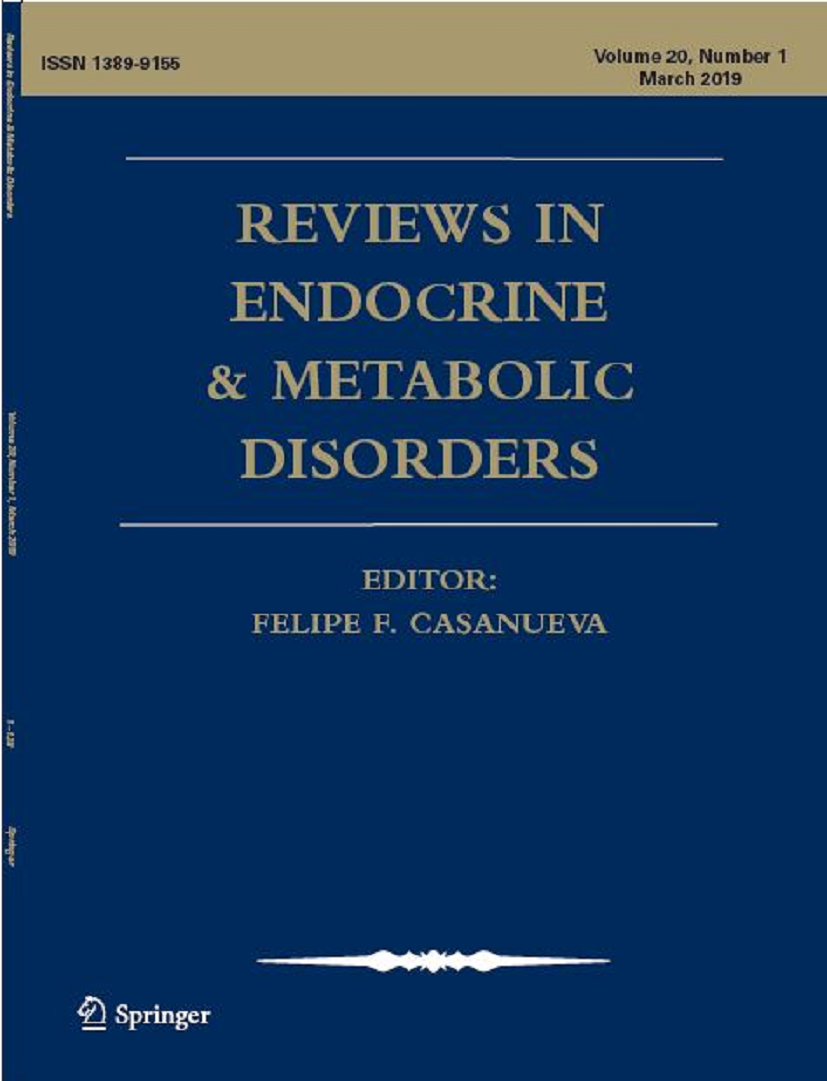
Circadian alignment of food intake and glycaemic control by time-restricted eating: A systematic review and meta-analysis
2023 Nov 22 Reviews in Endocrine and Metabolic Disorders Rovira-Llopis S, Luna-Marco C, Perea-Galera L, Bañuls C, Morillas C, Victor VM
Time-restricted eating (TRE) demonstrated no significant effect on fasting glucose overall, but it did reduce HbA1c levels and fasting insulin, with a tendency to decrease HOMA-IR. The timing of food intake was identified as a crucial factor, with early TRE (eTRE) significantly reducing fasting glucose levels in subjects with overweight or obesity.
Systematic Review Meta-Analysis Intermittent Fasting Circadian Rhythm Blood Sugar Glycaemic Control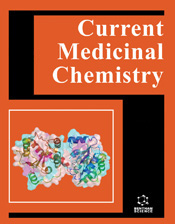
The Effects of Apple Cider Vinegar on Cardiometabolic Risk Factors: A Systematic Review and Meta-analysis of Clinical Trials
2023 Oct 11 Current Medicinal Chemistry Dadkhah Tehrani S, Keshani M, Rouhani MH, Moallem SA, Bagherniya M, Sahebkar A
Systematic Review Meta-Analysis Apple Cider Vinegar Blood Sugar Cholesterol HbA1CConsumption of apple cider vinegar significantly improves certain risk factors for cardiometabolic syndrome, notably fasting blood glucose, glycosylated hemoglobin, and total cholesterol.
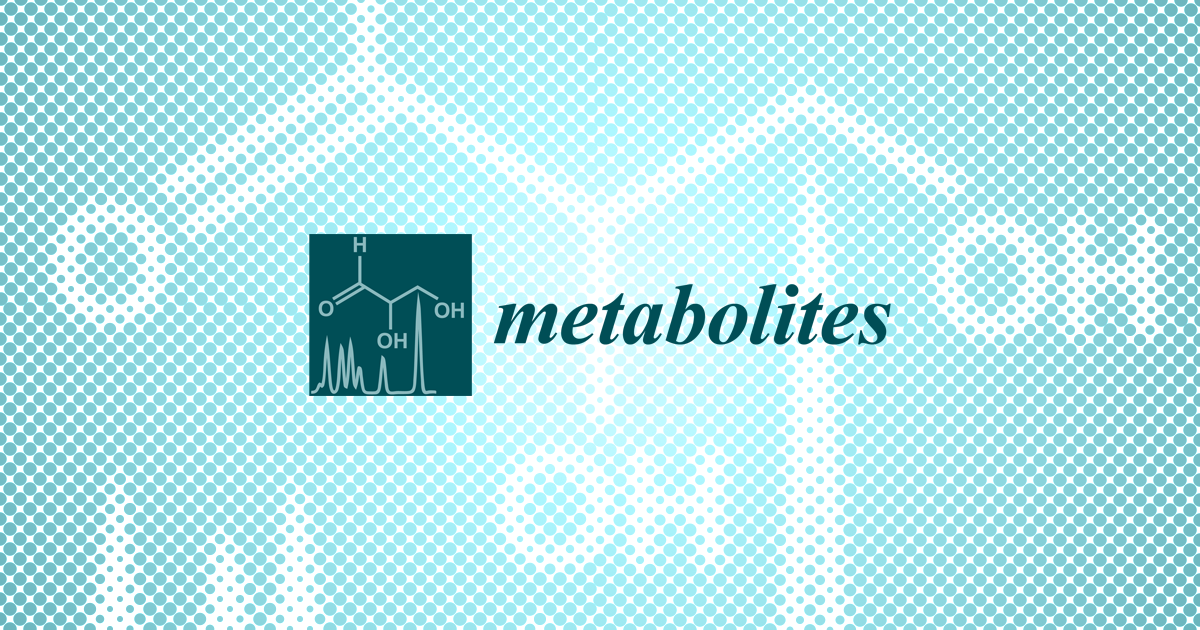
Sugar-Sweetened Coffee Intake and Blood Glucose Management in Korean Patients with Diabetes Mellitus
2022 Nov 25 Metabolites Yoo H, Park K
Cohort Study Sugar HbA1C Coffee Blood SugarFrequent consumption of sugar-sweetened coffee can adversely affect blood sugar control in patients with diabetes mellitus in Korea.

Consumption of sesame seeds and sesame products has favorable effects on blood glucose levels but not on insulin resistance: A systematic review and meta‐analysis of controlled clinical trials
2022 Jan 18 Phytotherapy Research Sohouli MH, Haghshenas N, Hernández‐Ruiz , Shidfar F
Systematic Review Meta-Analysis Blood Sugar SesameConsumption of sesame seeds and its products positively influences human glucose metabolism, potentially making it a beneficial addition to glucose-lowering diets.

The Effects of Almonds on Gut Microbiota, Glycometabolism, and Inflammatory Markers in Patients with Type 2 Diabetes: A Systematic Review and Meta-Analysis of Randomised Controlled Trials
2021 Sep 26 Nutrients Ojo O, Wang XH, Ojo OO, Adegboye ARA
Systematic Review Meta-Analysis Type 2 Diabetes Gut Microbiota Obesity HbA1C AlmondAlmond-based diets may be effective in promoting short-chain fatty acid-producing bacteria and lowering glycated haemoglobin and body mass index in patients with type 2 diabetes compared with control.
Research insights are moderated by the Research Hub team and offer an at-a-glance overview of interesting research findings.

2023 Current Medicinal Chemistry
Consumption of apple cider vinegar significantly improves certain risk factors for cardiometabolic syndrome, notably fasting blood glucose, glycosylated hemoglobin, and total cholesterol.
Systematic Review Apple Cider Vinegar Blood Sugar Cholesterol
The Effects of Apple Cider Vinegar on Cardiometabolic Risk Factors:
A Systematic Review and Meta-analysis of Clinical Trials
Dadkhah Tehrani S, Keshani M, Rouhani MH, Moallem SA, Bagherniya M, Sahebkar A

2022 Metabolites
Frequent consumption of sugar-sweetened coffee can adversely affect blood sugar control in patients with diabetes mellitus in Korea.
Cohort Study Blood Sugar Coffee Sugar
Sugar-Sweetened Coffee Intake and Blood Glucose Management in Korean Patients with Diabetes Mellitus
Yoo H, Park K

2022 Phytotherapy Research
Consumption of sesame seeds and its products positively influences human glucose metabolism, potentially making it a beneficial addition to glucose-lowering diets.
Systematic Review Blood Sugar Sesame
Consumption of sesame seeds and sesame products has favorable effects on blood glucose levels but not on insulin resistance: A systematic review and meta‐analysis of controlled clinical trials
Sohouli MH, Haghshenas N, Hernández‐Ruiz , Shidfar F

2021 Nutrients
Almond-based diets may be effective in promoting short-chain fatty acid-producing bacteria and lowering glycated haemoglobin and body mass index in patients with type 2 diabetes compared with control.
Systematic Review Almond Gut Microbiota Obesity Type 2 Diabetes
The Effects of Almonds on Gut Microbiota, Glycometabolism, and Inflammatory Markers in Patients with Type 2 Diabetes: A Systematic Review and Meta-Analysis of Randomised Controlled Trials
Ojo O, Wang XH, Ojo OO, Adegboye ARA

2021 BMC Complementary Medicine and Therapies
Apple cider vinegar intake can significantly decrease total cholesterol and fasting plasma glucose levels contributing to better cardiovascular health among adults.
Systematic Review Apple Cider Vinegar
The effect of apple cider vinegar on lipid profiles and glycemic parameters: a systematic review and meta-analysis of randomized clinical trials
Hadi A, Pourmasoumi M, Najafgholizadeh A, Clark CCT, Esmaillzadeh A
Review Articles
Review articles summarise and critically evaluate the current state of research on a specific topic or field by synthesising multiple primary research studies.

Circadian alignment of food intake and glycaemic control by time-restricted eating: A systematic review and meta-analysis
2023 Nov 22 Reviews in Endocrine and Metabolic Disorders Rovira-Llopis S, Luna-Marco C, Perea-Galera L, Bañuls C, Morillas C, Victor VM
Time-restricted eating (TRE) demonstrated no significant effect on fasting glucose overall, but it did reduce HbA1c levels and fasting insulin, with a tendency to decrease HOMA-IR. The timing of food intake was identified as a crucial factor, with early TRE (eTRE) significantly reducing fasting glucose levels in subjects with overweight or obesity.
Systematic Review Meta-Analysis Intermittent Fasting Circadian Rhythm Blood Sugar Glycaemic Control
The Effects of Apple Cider Vinegar on Cardiometabolic Risk Factors: A Systematic Review and Meta-analysis of Clinical Trials
2023 Oct 11 Current Medicinal Chemistry Dadkhah Tehrani S, Keshani M, Rouhani MH, Moallem SA, Bagherniya M, Sahebkar A
Systematic Review Meta-Analysis Apple Cider Vinegar Blood Sugar Cholesterol HbA1CConsumption of apple cider vinegar significantly improves certain risk factors for cardiometabolic syndrome, notably fasting blood glucose, glycosylated hemoglobin, and total cholesterol.

Consumption of sesame seeds and sesame products has favorable effects on blood glucose levels but not on insulin resistance: A systematic review and meta‐analysis of controlled clinical trials
2022 Jan 18 Phytotherapy Research Sohouli MH, Haghshenas N, Hernández‐Ruiz , Shidfar F
Systematic Review Meta-Analysis Blood Sugar SesameConsumption of sesame seeds and its products positively influences human glucose metabolism, potentially making it a beneficial addition to glucose-lowering diets.

The Effects of Almonds on Gut Microbiota, Glycometabolism, and Inflammatory Markers in Patients with Type 2 Diabetes: A Systematic Review and Meta-Analysis of Randomised Controlled Trials
2021 Sep 26 Nutrients Ojo O, Wang XH, Ojo OO, Adegboye ARA
Systematic Review Meta-Analysis Type 2 Diabetes Gut Microbiota Obesity HbA1C AlmondAlmond-based diets may be effective in promoting short-chain fatty acid-producing bacteria and lowering glycated haemoglobin and body mass index in patients with type 2 diabetes compared with control.

The effect of apple cider vinegar on lipid profiles and glycemic parameters: a systematic review and meta-analysis of randomized clinical trials
2021 Jun 29 BMC Complementary Medicine and Therapies Hadi A, Pourmasoumi M, Najafgholizadeh A, Clark CCT, Esmaillzadeh A
Systematic Review Meta-Analysis Apple Cider Vinegar HbA1CApple cider vinegar intake can significantly decrease total cholesterol and fasting plasma glucose levels contributing to better cardiovascular health among adults.
Clinical Trials
Clinical trials are research studies that involve people and are conducted to evaluate the safety and efficacy of new treatments or interventions, such as drugs, medical devices, or behavioural therapies.

Effect of dietary supplementation with oat β-glucan for 3 months in subjects with type 2 diabetes: A randomized, double-blind, controlled clinical trial
2021 Feb Journal of Functional Foods Pino JL, Mujica V, Arredondo M
Randomised Controlled Trial Gut Microbiota Satiety HbA1C Type 2 Diabetes Blood Sugar OatsEnriching a regular diet with oat β-glucan can improve glycemic control, augment feelings of fullness, and positively modulate gut microbiota in individuals with type-2 diabetes.
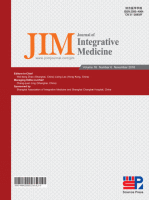
Effects of bee propolis supplementation on glycemic control, lipid profile and insulin resistance indices in patients with type 2 diabetes: a randomized, double-blind clinical trial
2017 Mar Journal of Integrative Medicine Samadi N, Mozaffari-Khosravi H, Rahmanian M, Askarishahi M
Daily intake of 900 mg of bee propolis supplement for 12 weeks led to improvements in glycemic control, as evidenced by reductions in fasting blood glucose (FBG) and hemoglobin A1c (HbA1c), as well as protective effects against the increase in total cholesterol (TC) levels in patients with T2D. However, no significant changes were observed in other lipid parameters or insulin resistance indices.
Randomised Controlled Trial PropolisStudy Protocols
Published study protocols are detailed plans that outline the objectives, methodology, statistical analyses, and organisation of a research study that have been made publicly available for others to review and use as a reference.
Presentation Slides

Systematic Review
Consumption of apple cider vinegar significantly improves certain risk factors for cardiometabolic syndrome, notably fasting blood glucose, glycosylated hemoglobin, and total cholesterol.
Dadkhah Tehrani S, Keshani M, Rouhani MH, Moallem SA, Bagherniya M, Sahebkar A

Cohort Study
Frequent consumption of sugar-sweetened coffee can adversely affect blood sugar control in patients with diabetes mellitus in Korea.
Yoo H, Park K

Systematic Review
Consumption of sesame seeds and its products positively influences human glucose metabolism, potentially making it a beneficial addition to glucose-lowering diets.
Sohouli MH, Haghshenas N, Hernández‐Ruiz , Shidfar F

Systematic Review
Almond-based diets may be effective in promoting short-chain fatty acid-producing bacteria and lowering glycated haemoglobin and body mass index in patients with type 2 diabetes compared with control.
Ojo O, Wang XH, Ojo OO, Adegboye ARA

Systematic Review
Apple cider vinegar intake can significantly decrease total cholesterol and fasting plasma glucose levels contributing to better cardiovascular health among adults.
Hadi A, Pourmasoumi M, Najafgholizadeh A, Clark CCT, Esmaillzadeh A

Randomised Controlled Trial
Enriching a regular diet with oat β-glucan can improve glycemic control, augment feelings of fullness, and positively modulate gut microbiota in individuals with type-2 diabetes.
Pino JL, Mujica V, Arredondo M
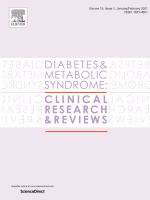
Systematic Review
The supplementary intake of green tea does not significantly affect blood glucose, fasting insulin, hemoglobin A1c, and insulin resistance in patients with type 2 diabetes mellitus.
Asbaghi O, Fouladvand F, Gonzalez MJ, Ashtary-Larky D, Choghakhori R, Abbasnezhad A
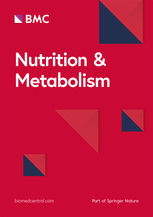
Systematic Review
Green tea supplementation significantly lowers fasting glucose levels but does not significantly affect fasting insulin and haemoglobin A1c values.
Xu R, Bai Y, Yang K, Chen G
Executive Summary
Write an executive summary in the form of a blog article on the topic of "Research into Chinese medicine treatment for HbA1C" summarising the research below and using language that can be easily understood by patients and avoiding medical jargon using a professional and caring tone of voice.
Write an executive summary in the form of a blog article on the topic of "Researched Chinese medicine treatments for HbA1C" summarising the research below in an objective and easy to understand way, and using language that can be easily understood by patients. Group the article into Chinese medicine treatments first, followed by nutrition and other treatments. Avoid using medical jargon and use a professional and caring tone of voice.
Write me a concise but easy to understand executive summary on the topic of "Chinese medicine treatments for HbA1C" based on the following research that I will give you. Your summary should be 2 paragraphs long in Australian English spelling and include references to the studies.
A Systematic Review published in 2023 in the journal Current Medicinal Chemistry found that Consumption of apple cider vinegar significantly improves certain risk factors for cardiometabolic syndrome, notably fasting blood glucose, glycosylated hemoglobin, and total cholesterol. This study applied a systematic review and meta-analysis of clinical trials found in PubMed, Scopus, and ISI Web of Science databases. In this process, trials evaluating the effects of apple cider vinegar consumption on cardiometabolic syndrome risk factors were sought. In total, 25 clinical trials were included in the study, these trials encompassed 1320 adult participants. The consumed apple cider vinegar led to a general improvement in fasting blood glucose, glycosylated hemoglobin, and total cholesterol. However, for body mass index, insulin resistance, serum insulin, triglycerides, low-density lipoprotein cholesterol, and high-density lipoprotein cholesterol, no significant results were observed. Conducting a subgroup analysis, the study identified a significant decrease in fasting blood glucose, glycosylated hemoglobin, total cholesterol, and triglycerides in diabetic patients. Further, it was observed that the apple cider vinegar significantly reduced fasting blood glucose levels regardless of the duration of administration and also decreased triglycerides concentration when consumed for 12 weeks or more.
A Cohort Study published in 2022 in the journal Metabolites found that Frequent consumption of sugar-sweetened coffee can adversely affect blood sugar control in patients with diabetes mellitus in Korea. This study focused on adult coffee consumption patterns in Korea using data collected from the Korea National Health and Nutrition Examination Survey between 2008 to 2020. The consuming habits of 5671 diabetic patients were analyzed considering how often they consumed a mixture of coffee with sugar and creamer, referred commonly as 3-in-1 coffee. The methods used involved assessing these patterns through a 24-hour recall. Blood sugar control was evaluated using fasting blood glucose levels and hemoglobin A1c levels, in line with the targets set by the Korean Diabetes Association. The results revealed that nearly half of the diabetic patients in this study consumed sugar-sweetened coffee. These patients demonstrated significantly higher fasting blood glucose and hemoglobin A1c levels compared to those who did not partake in such consumption. The findings also indicated an increased likelihood of patients failing to achieve their blood sugar control targets, corresponding to the frequency of their consumption of sugar-sweetened coffee.
A Systematic Review published in 2022 in the journal Phytotherapy Research found that Consumption of sesame seeds and its products positively influences human glucose metabolism, potentially making it a beneficial addition to glucose-lowering diets. The methodology involved conducting a systematic review and meta-analysis on the effect of sesame seeds consumption on blood glucose and insulin resistance in adults. The researchers gathered data from recognized academic resources like PubMed/MEDLINE, SCOPUS, Web of Science, Google Scholar, and EMBASE, which included controlled clinical trials up until February 2021. The sesame products in these trials ranged from sesame oil, sesamin, and tahini, with the intervention period lasting from 45 days to 9 weeks. The results illustrate that the intake of sesame and its products significantly improved fasting blood glucose and Hemoglobin A1c levels. Nonetheless, the results regarding fasting serum insulin and the homeostatic model assessment for insulin resistance were not found to have any significant relation. Hence, the consumption of sesame might be a beneficial supplement for managing glucose levels in humans.
A Systematic Review published in 2021 in the journal Nutrients found that Almond-based diets may be effective in promoting short-chain fatty acid-producing bacteria and lowering glycated haemoglobin and body mass index in patients with type 2 diabetes compared with control. The research was a systematic review and meta-analysis, conducted using the preferred reporting items for systematic review and meta-analysis methodology. Diverse databases, including the Health Sciences Research Databases via EBSCOhost, Google Scholar, EMBASE, and other article's reference lists, were thoroughly searched following the population, intervention, control, outcome, and study framework. The searches encompassed all relevant studies available from the inception of these databases until August 1, 2021. Nine randomised studies were analysed, eight of which were used for the meta-analysis. Results revealed that diets rich in almonds foster the growth of gut bacteria that produce short-chain fatty acids. Additionally, the analysis demonstrated that such diets effectively reduce both glycated haemoglobin levels and body mass index in patients with type 2 diabetes. However, the effects of almonds were not significant concerning fasting blood glucose, 2-hour postprandial blood glucose, various inflammatory markers, and certain other indicators of diabetes. The biological mechanisms attributed to reductions in glycated haemoglobin and body mass index are thought to be related to the nutritional composition of almonds, namely their high fibre content and low glycaemic index.
A Systematic Review published in 2021 in the journal BMC Complementary Medicine and Therapies found that Apple cider vinegar intake can significantly decrease total cholesterol and fasting plasma glucose levels contributing to better cardiovascular health among adults. The research process involved a thorough examination of electronic databases such as Medline, Scopus, Cochrane Library, and Web of Knowledge, from their creation until January 2020. The goal was to discover any clinical trial that explored the influence of apple cider vinegar (ACV) on lipid profiles and glycemic indicators. Studies where ACV was combined with other interventions or where the intervention duration was less than two weeks were excluded. To manage the differences between studies, a random-effects model was applied during the meta-analysis process comprising nine studies, including ten study arms. ACV use demonstrated a remarkable decrease in total cholesterol and fasting plasma glucose (FPG) levels. However, there wasn't a noticeable impact observed on LDL-C, HDL-C, fasting insulin concentrations, or HOMA-IR serum levels. When analyzed further, it was found that a reduction in serum TC and TG occurred in a patient subgroup with type 2 diabetes, those who consumed less than or equal 15 mL/day of ACV, and those who consumed it for over 8-weeks. Consequently, a significant decrease in FPG levels was found in studies where participants consumed ACV for more than 8 weeks. Interestingly, FPG and HDL-C levels appeared to increase in participants who were otherwise healthy.
A Randomised Controlled Trial published in 2021 in the journal Journal of Functional Foods found that Enriching a regular diet with oat β-glucan can improve glycemic control, augment feelings of fullness, and positively modulate gut microbiota in individuals with type-2 diabetes. The research involved 37 subjects with type-2 diabetes, who were required to consume either oat β-glucan or microcrystalline cellulose as a control dietary supplement each day for a period of 12 weeks. The parameters assessed throughout the study included fasting glucose, insulin, a variety of hormones and peptides regulating appetite (like ghrelin, leptin, GLP-1, PYY), caloric intake, and the profile of their intestinal microbiota. The results indicated a decrease in HbA1c, insulin, C-peptide levels, as well as certain bacterial populations (Lactobacillus spp, and Butyrate-producing bacteria) in subjects who consumed β-glucan. Significant differences were observed in levels of certain hormones, namely leptin, GLP-1, and PYY, between the two groups. The intake of oat β-glucan emerged as a potential strategy to manage type-2 diabetes, by improving glycemic control, enhancing feelings of satiety, and fostering a healthier gut microbiota profile.
A Systematic Review published in 2021 in the journal Diabetes & Metabolic Syndrome: Clinical Research & Reviews found that The supplementary intake of green tea does not significantly affect blood glucose, fasting insulin, hemoglobin A1c, and insulin resistance in patients with type 2 diabetes mellitus. To examine the impact of green tea consumption on type 2 diabetes mellitus patients, a comprehensive search for relevant randomized controlled trials was conducted across multiple databases, including Web of Science, PubMed, and Scopus, without any language or time restrictions until June 2019. Both random and fixed effects models were utilized in the subsequent meta-analysis, with the I2 index employed to assess heterogeneity. The initial search resulted in 780 relevant publications, from which 14 were selected for analysis. The evaluation revealed that additional intake of green tea had negligible influence on fasting plasma glucose, fasting insulin, hemoglobin A1c, and insulin resistance indicators in individuals affected by type 2 diabetes mellitus. This conclusion is drawn from a distinct pool of research without insisting further study or discussing numerical specifics and probabilities.
A Systematic Review published in 2020 in the journal Nutrition & Metabolism found that Green tea supplementation significantly lowers fasting glucose levels but does not significantly affect fasting insulin and haemoglobin A1c values. The researchers performed a systematic review and meta-analysis of randomized control trials which examined the effect of green tea on glycemic control. Using online databases like PubMed, Embase, and Cochrane Library, they identified relevant trials up until February 2020. They then employed a random-effects model in order to estimate the weighted mean difference. In the discussion of the results, it was found that twenty-seven trials, including 2194 subjects, were part of the meta-analysis. The collected data indicated that green tea lowered fasting blood glucose levels significantly. However, the same was not observed for fasting insulin and HbA1c values, which remained relatively unchanged despite green tea consumption. Moreover, substantial differences were noted in the range of responses, indicating significant heterogeneity, especially for fasting insulin levels. Despite these discrepancies, the short-term trials collectively demonstrated the beneficial effect of green tea supplementation in reducing fasting glucose levels.
Moderation Tools
Topic
Sign In
Users not signed in are limited to viewing the 5 most recent items of content.